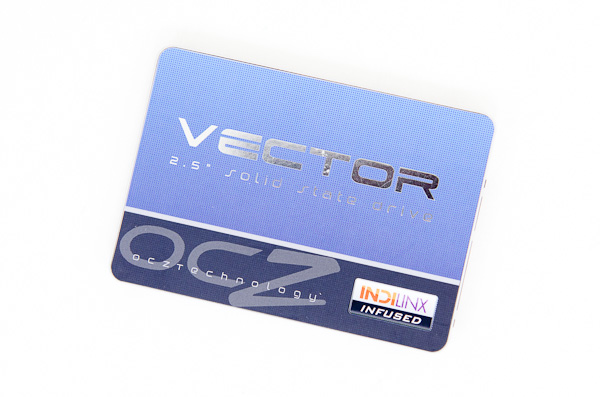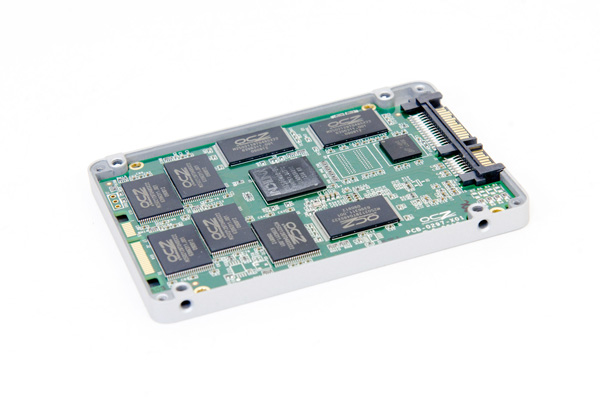OCZ Vector (256GB) Review
by Anand Lal Shimpi on November 27, 2012 9:10 PM ESTFinal Words
With the Vector, OCZ has built a price and performance competitor to Samsung's SSD 840 Pro, which previously remained peerless at the top of our charts. For a company that just weeks ago was considered down and out for the count, this is beyond impressive. Samsung has emerged as one of the strongest players in the consumer SSD space, and OCZ appears ready to challenge it. In our tests, Samsung typically enjoys better peak performance, but OCZ's Vector appears to have the advantage when it comes to worst case performance and IO consistency. The latter tend to be more valuable in improving overall user experience in my opinion. I would still like to see an S3700-class client drive and I'd be willing to give up top-end performance to get there, but I suspect that's a tall order for now.
The Vector's power consumption under load, given the performance it's able to deliver, is excellent. I wish idle power consumption were better, making the 830/840 Pro a better fit for ultra mobile applications. But under load the Vector and 840 Pro are indistinguishable from one another.
The only downside to the Vector really is its price, which like the 840 Pro is at a definite premium vs competition from the previous generation. As with all SSDs however, I fully expect Barefoot 3 and maybe even the Vector itself to fall in price over time. If you want the latest and greatest available today, Samsung's 840 Pro now has competition in OCZ's Vector.
The Barefoot 3 controller is quite promising. It certainly seems very capable from a performance standpoint without blowing through its power budget. It's no small feat if OCZ's best in-house silicon can be spoken of in the same sentence as Samsung's. The PLX and Indilinx acquisitions appear to have paid off. I'm curious to see how OCZ's improved validation and reliability testing fare in the long run. This isn't the first time that OCZ has promised to focus more on validation, but with Vector I do get the feeling that things are different. I didn't run into any compatibility issues or reliability problems with the Vector in my testing, but as always the proof is what happens when these drives make their way into the hands of end users.
Overall I'm impressed by the Vector. It's a huge improvement over the already good Vertex 4, and manages to compete in a different league by fixing some lingering performance issues with its predecessor. I had resigned myself to assuming no one would come close to Samsung on the high-end, but it's good to be proven wrong. Should OCZ be able to deliver Samsung-like performance and reliability, then I'll really be impressed.












151 Comments
View All Comments
SodaAnt - Wednesday, November 28, 2012 - link
Its way too large for a msata drive, so it wouldn't fit anyways.somebody997 - Thursday, April 11, 2013 - link
Why is there an mSATA connector on the PCB anyway?somebody997 - Thursday, April 11, 2013 - link
The PCB is far too large for an mSATA drive anyway, so why have the mSATA connector?Anand Lal Shimpi - Wednesday, November 28, 2012 - link
That's likely a custom debug port, not mSATA.Take care,
Anand
Heavensrevenge - Wednesday, November 28, 2012 - link
Actually that connection is indeed a physically identically sized/compatible m-SATA connection. The problem is it's inability to actually plug in due to the SSD's general size or whether it's able to communicate with the typical m-SATA ports on mobos.http://www.pclaunches.com/entry_images/1210/22/tra... should give a decent example.
vanwazltoff - Thursday, December 20, 2012 - link
might be a sign of something else in the works from ocz like an msata cable to plug into it or something, maybe something even more awesome like double the band width by connected it to a ocz pci break off board. i guess we will seemayankleoboy1 - Tuesday, November 27, 2012 - link
I have a Vertex2 256GB SSD.Is it worth upgrading to a Vector or a Samsung840 Pro SSD ?
MadMan007 - Tuesday, November 27, 2012 - link
If you've got a motherboard with SATA 6Gb/s you would probably notice a difference. Whether it's worth it is up to you - do you do a lot of disk-intensive work to the point where you wish it were faster? While I'm the difference would be noticable, it might not be huge or worth spending $200+ on.MrSpadge - Wednesday, November 28, 2012 - link
Are you often waiting for your disk to finish tasks? If not it's not going to be worth it.Beenthere - Tuesday, November 27, 2012 - link
It's going to take more than a nice type written letter to resolve the many product and service issues at OCZ - if they stay in business over the next six to 12 months.FYI- A five year warranty ain't worth the paper it's written on if the company no longer exists. In addition a five year warranty does not mean that a particular product is any better than a product with a one year warranty. For each extended year of warranty, the product price increases. So you're paying for something you may or may not ever use.
In addition it's useful to read the fine print on warranties. Most state that you will receive a refurbished or reconditioned replacement if your product develops a defect. If you've ever seen some of the "reconditioned" or "refurbished" mobos from Asus or similar products from other companies, you'd never install them in your PC.
People reach many untrue conclusions about product quality based on the warranty.